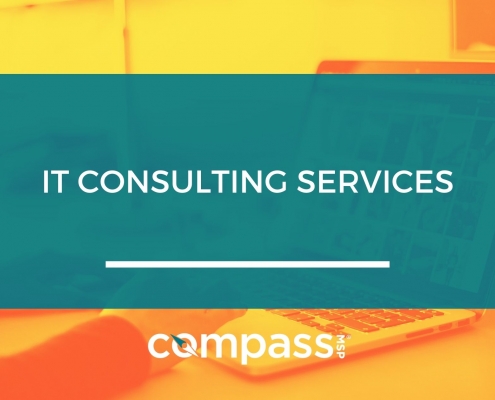
Starting a consulting business is a flexible and lucrative way to earn money. There are many legal aspects to be aware. You need to consider the following: Choosing the right business entity, obtaining licenses and ensuring your safety and health, as well as tax issues. Employees and insurance will also be important.
How to get a business credit score card
While applying for a business credit card, you should keep in mind that most of them require excellent or good credit. Don't apply if your credit isn't good enough. Also, you should look for credit cards with employee cards.
A business credit card will help you establish a strong business credit score and get the best business loans. Business cards can also be used to receive rewards for purchases. This can help your bottom line. The fees for business cards are higher than those of personal cards. Also, unpaid business debt could negatively impact your credit score.

Choose a name to represent your consulting firm
Name selection is an important step in starting a consulting business. The name that you choose should express your expertise. Customers will recognize your name and be able to identify with it. Consider your personal brand as well as your name. Many consultants choose to name their firms with their own last names or first names.
You should consider legal, financial, as well as marketing aspects when choosing a name. For example, some businesses prefer a C corporation because the owners do not have personal liability for the business debts. But, not every consulting business requires incorporation. Although incorporation can have many benefits, it requires more paperwork and is more time-consuming. Consider the pros and cons of each type of business entity before deciding which one is best for you.
Choose a legal structure
Texas offers many legal business structures, including limited liability companies, corporations, and partnerships. The type of structure you choose can impact the amount of paperwork you have, how tax-relevant, personal liability, and how easily you can raise funds. You can consult an attorney if your questions are not clear.
LLCs and partnerships are generally the best choices for consultants, as they limit liability. They require more paperwork. General partnerships and limited partnership are both viable options. Consultants who have more then one partner often prefer limited partnerships.

Obtaining a business licence
There are some things you need to do if you want to start a Texas consulting business. First, you will need to apply for a business license. You won't usually need a federal license to run your business. However, it is possible that you will need a local license.
Texas has several types of business licenses. Some are required by law and others are voluntary. It all depends on the nature of your business and whether you'll be conducting business within the city limits or outside the city limits. The city clerk will be able to advise you on these requirements. Your business will also require a sales or use tax permit. A sales tax license can be applied online or through your local government.
FAQ
How do I start an LLC consultancy business?
You must first figure out what you want to do as a service provider. You must then ensure you are qualified to offer those services. It may also be beneficial to look for someone who is already qualified to do what you desire and to see how they work.
Once you have an idea of the content you want, you can then determine where your target audience is. If they don't exist, you might have to make them.
You must then decide whether you want your business to be run by you or hired others.
It is possible to also start your own consulting firm by obtaining a license from the State. But this will require a lot more paperwork and legal costs.
How do I get clients for my consultancy business?
First, find a subject you're passionate about. You could choose anything from public relations to social media, but it should be something you love. You might have to start small, such as by finding niche markets like web design. Once you find the right niche, it is important to know what makes it tick. What problems does it solve Why should people use it? How can you help them?
You can also contact businesses directly.
You can also offer your services at events such as networking nights and conferences, if all else fails. You'll get to know many potential clients without spending money advertising.
Can anyone become a consultant
A consultant is someone who assists you in achieving your goals by offering advice and suggestions on how to achieve it faster, cheaper, and so forth.
A consultant may help you solve problems, make decisions, or negotiate with others.
Consultants can be hired to assist with specific tasks or projects.
Actually, most consultants get paid hourly and daily rates, rather than per-project.
Why should consultants be hired?
You might need consultants for a variety of reasons.
-
A specific project or problem may be a challenge for your company.
-
You want to increase your skills and learn something new
-
You want to work closely with experts in a certain field
-
No one else is available to take on the task.
-
You feel overwhelmed with all the information you see and don’t know where it is.
-
You don't have the money to pay someone full time
Referrals are the best way for you to find a qualified consultant. Ask your friends and colleagues if they know of any trustworthy consultants. If you are already acquainted with someone who works as an advisor, ask them for recommendations.
If you decide to use online directories like LinkedIn, use the "Search People" feature to look for consultants in your area.
Why would a company want to hire a consultant for their business?
A consultant offers expert advice on improving your business performance. They aren't there to sell your products.
A consultant is a person who helps companies make better choices by providing sound analysis, and making recommendations for improvement.
Consultants often work with senior management to help them understand how to succeed.
They also provide leadership training and coaching to ensure employees develop the skills necessary to perform at peak levels.
They might advise businesses on how to reduce costs, streamline processes, or increase efficiency.
Statistics
- According to statistics from the ONS, the UK has around 300,000 consultants, of which around 63,000 professionals work as management consultants. (consultancy.uk)
- "From there, I told them my rates were going up 25%, this is the new hourly rate, and every single one of them said 'done, fine.' (nerdwallet.com)
- Over 50% of consultants get their first consulting client through a referral from their network. (consultingsuccess.com)
- 67% of consultants start their consulting businesses after quitting their jobs, while 33% start while they're still at their jobs. (consultingsuccess.com)
- WHY choose me: Why your ideal client should choose you (ex: 10 years of experience and 6-week program has helped over 20 clients boost their sales by an average of 33% in 6 months). (consultingsuccess.com)
External Links
How To
How to Find the Best Consultant
When searching for a consultant, the first thing you should do is ask yourself what your expectations are. Before you look for someone, you need to be clear about your expectations. A list of what you expect from a consultant is helpful. This list could include technical expertise, project management skills, communication skills and availability. Once you have identified your requirements, you might consider asking friends and colleagues to recommend you. Ask them if they had any bad experiences with consultants previously and see how their recommendations compare with yours. Research online if you don’t already have recommendations. There are many websites that allow users to leave feedback about their previous work experiences, such as LinkedIn and Facebook, Angie's List or Indeed. Take a look at comments and ratings from others, and use that data to find potential candidates. Once you have narrowed down your list, reach out to potential candidates and set up an interview. During the interview, you should talk through your requirements and ask them to explain how they can help you achieve those goals. It doesn't matter whether they were recommended to you or not; just ensure that they understand your business objectives and can demonstrate how they can help you reach those goals.